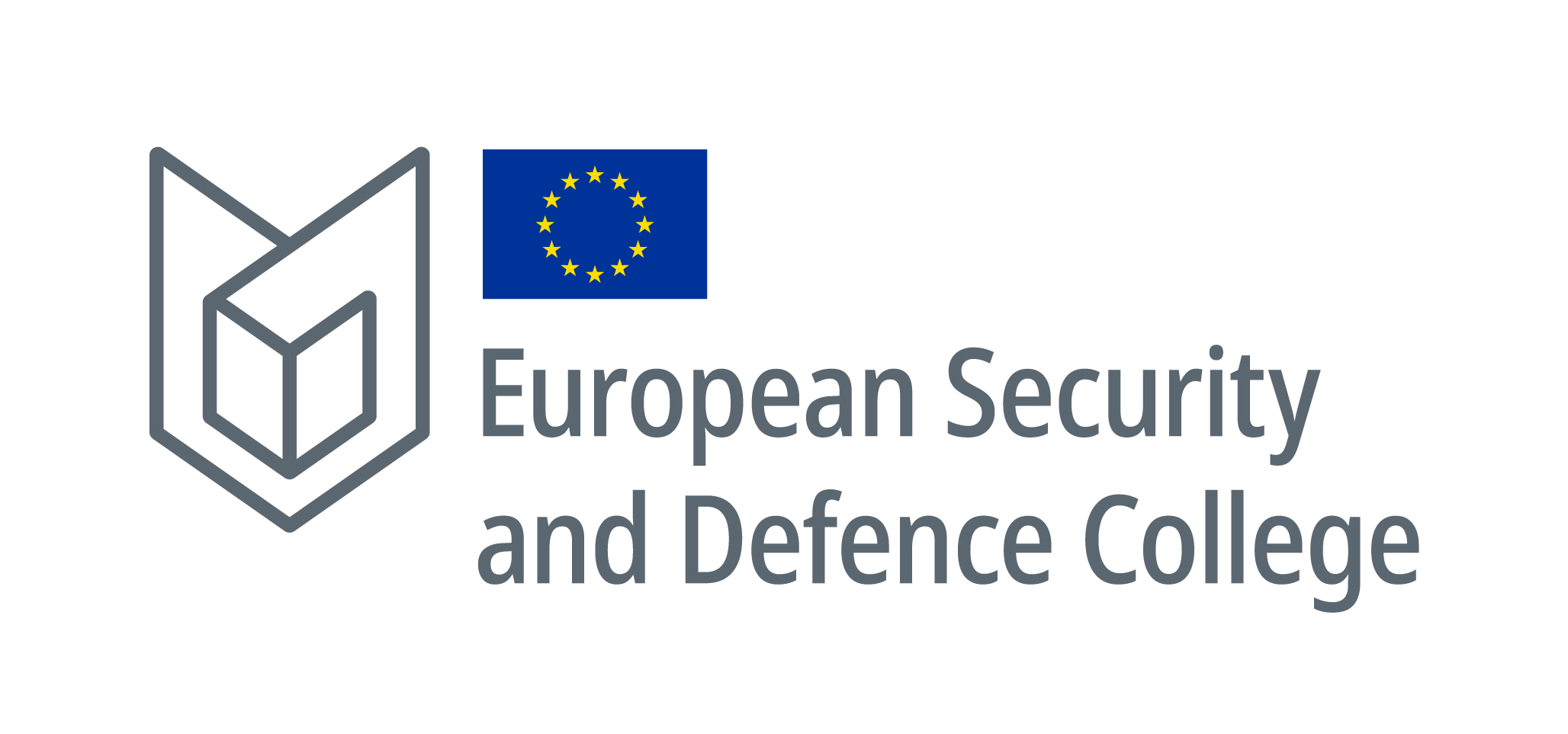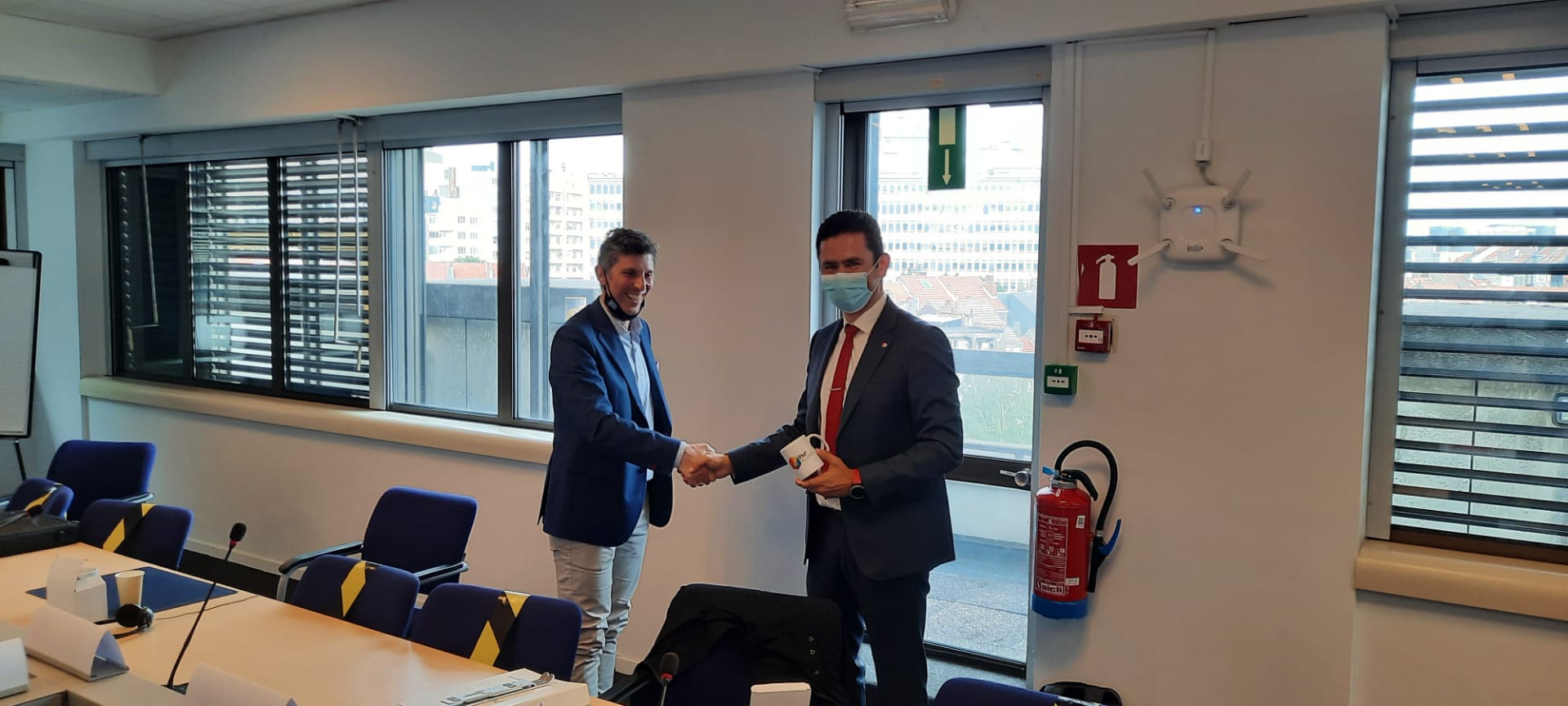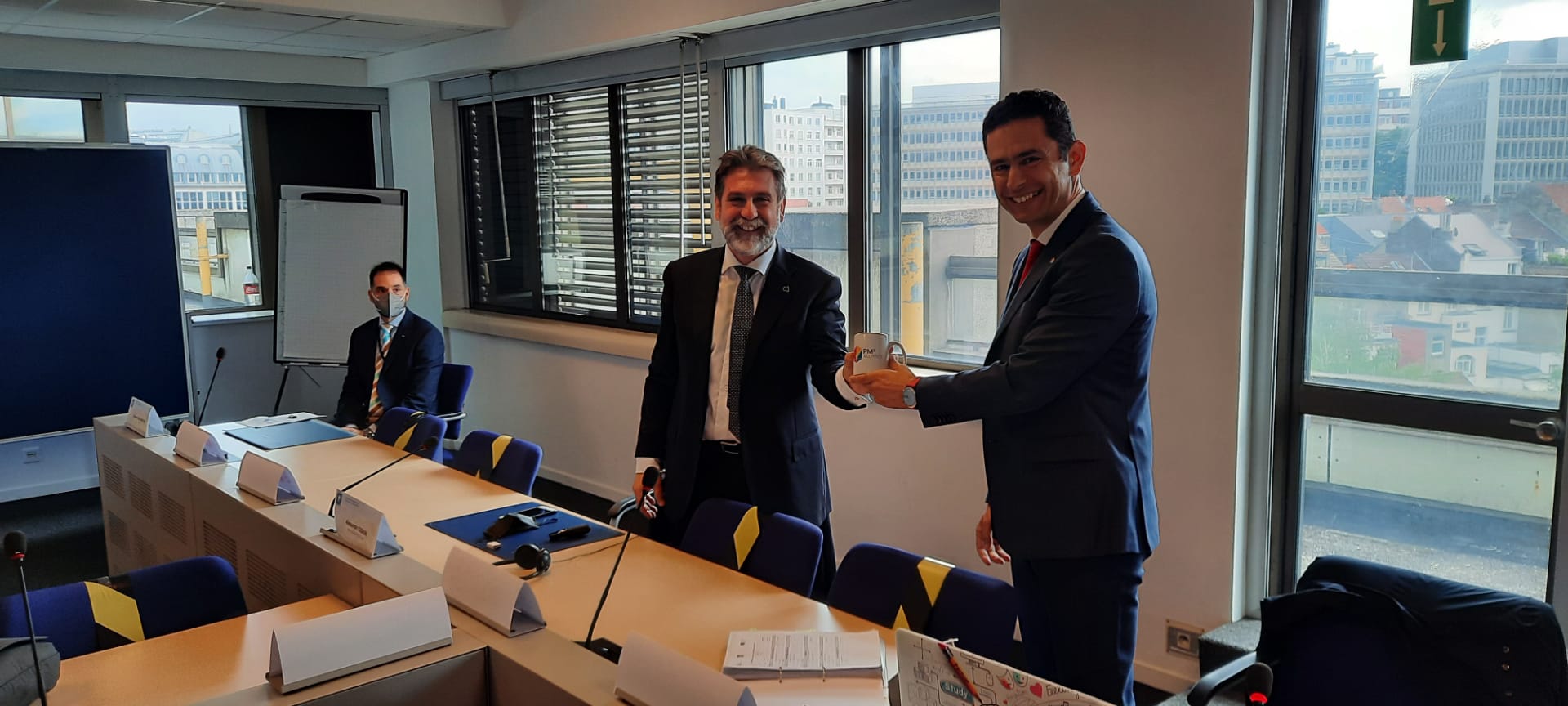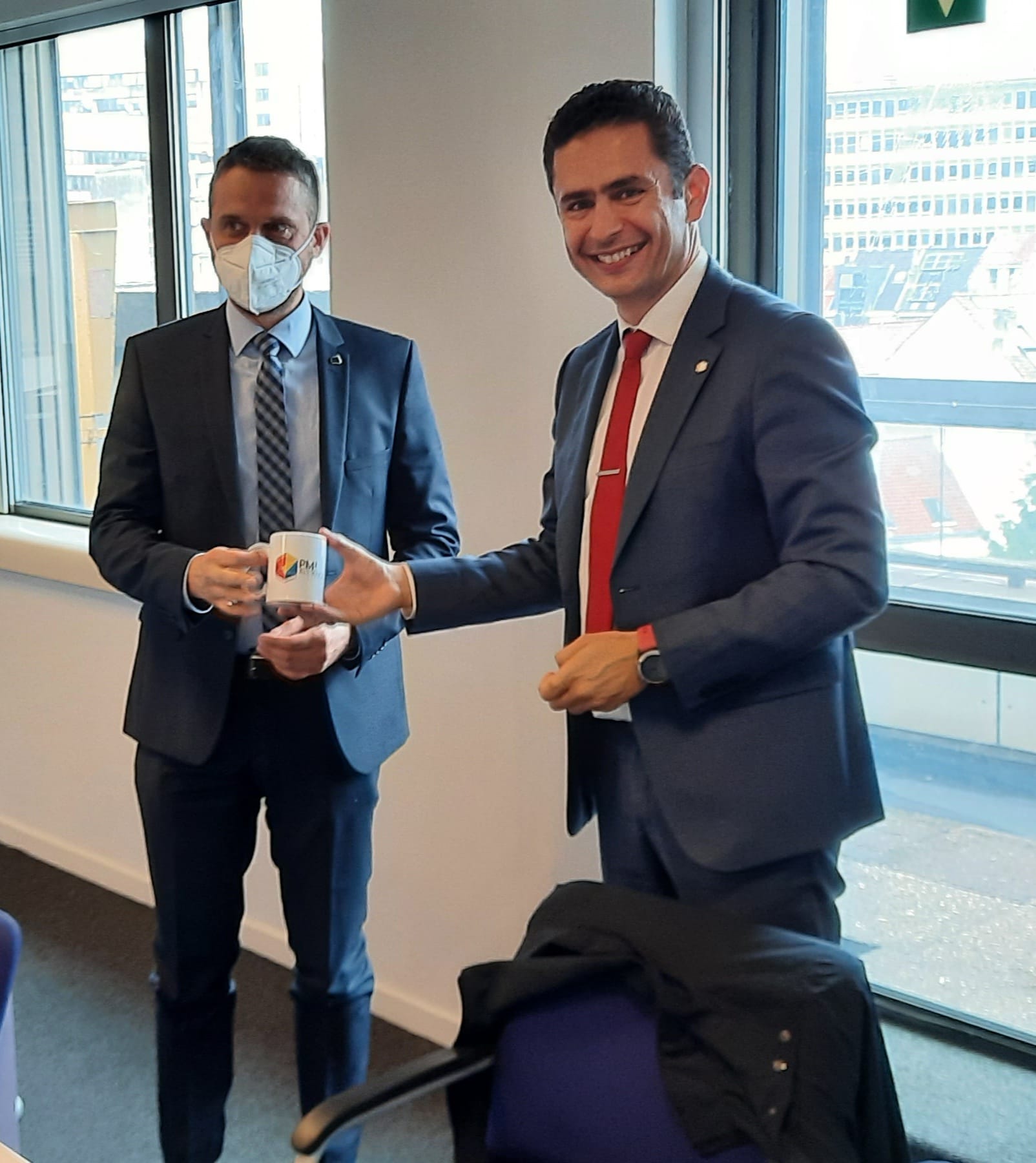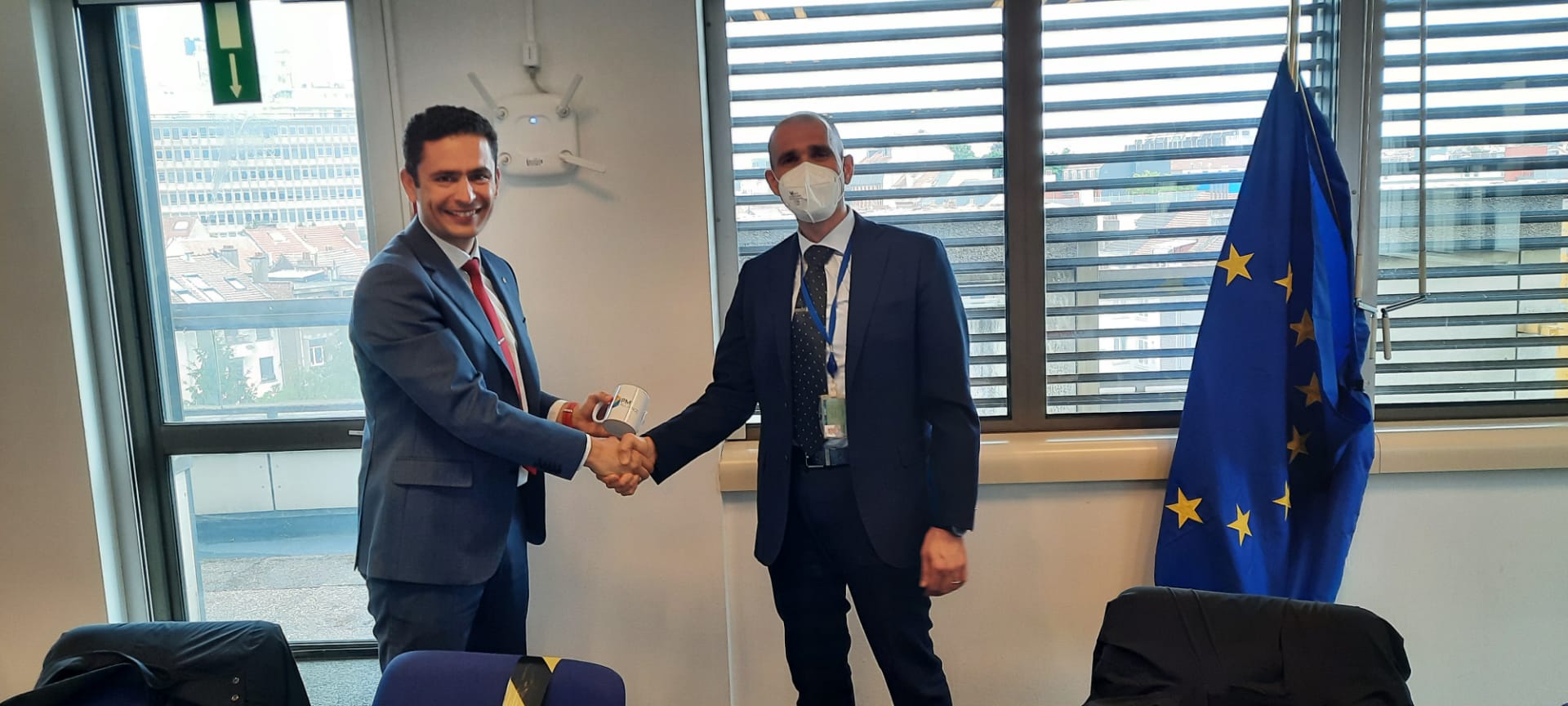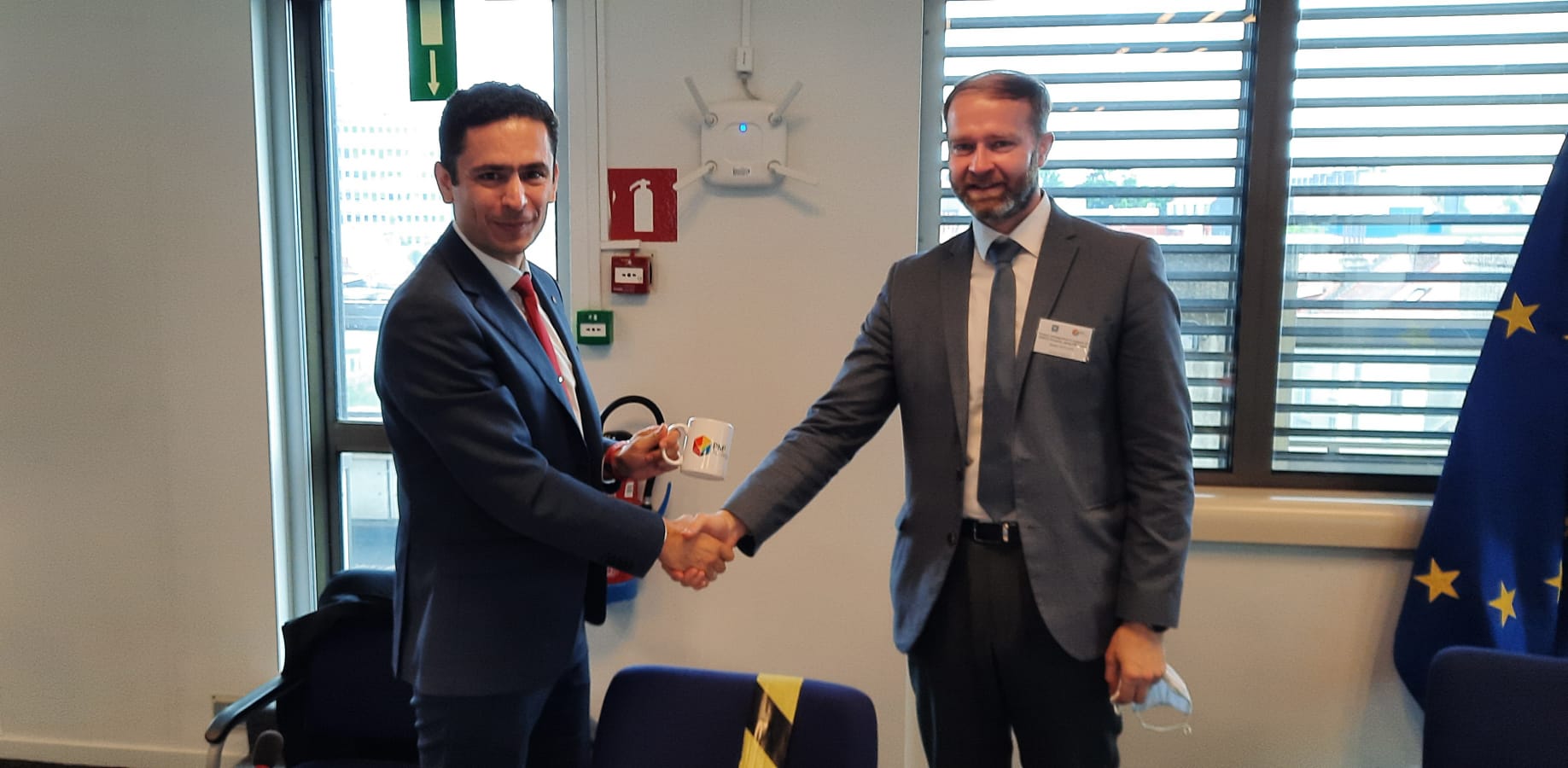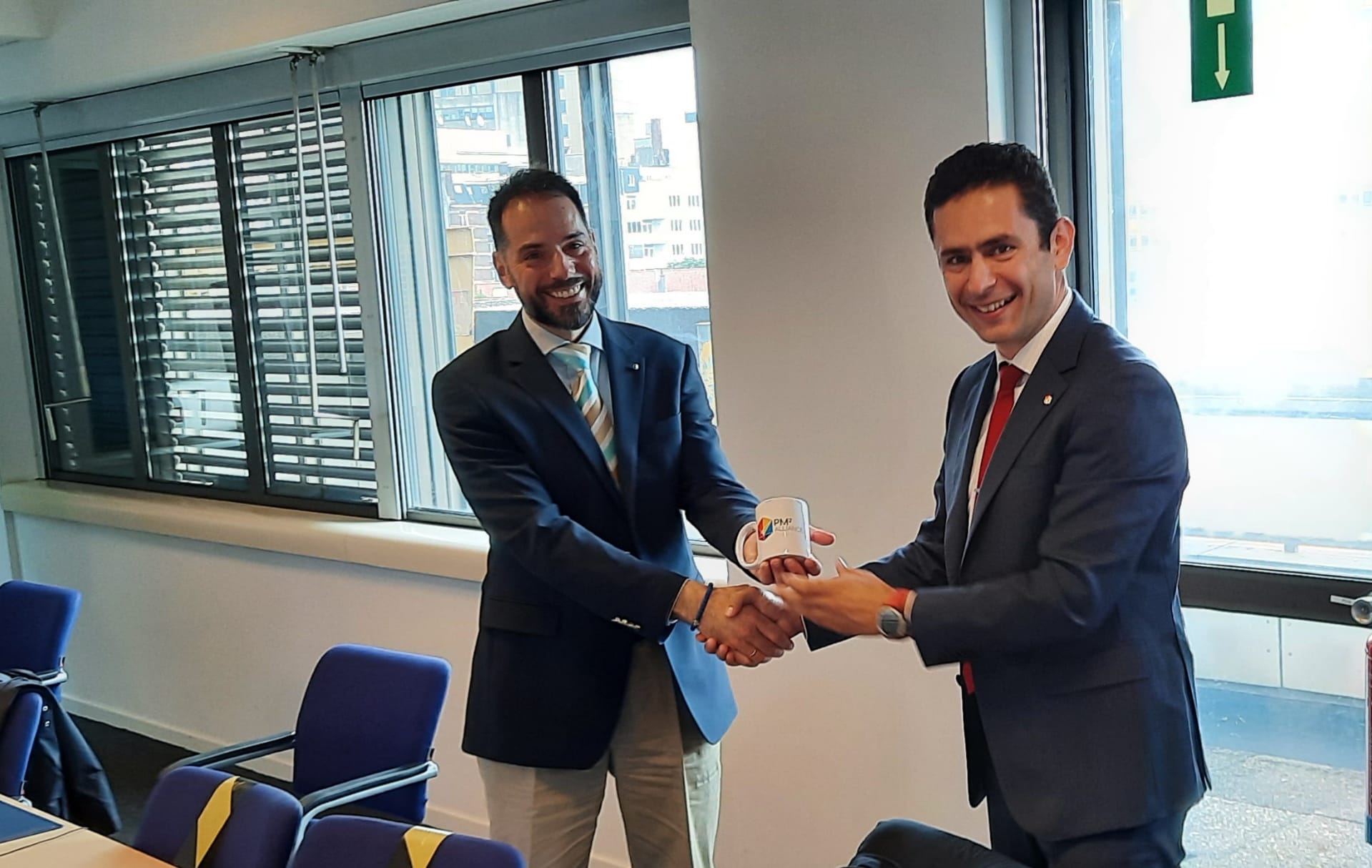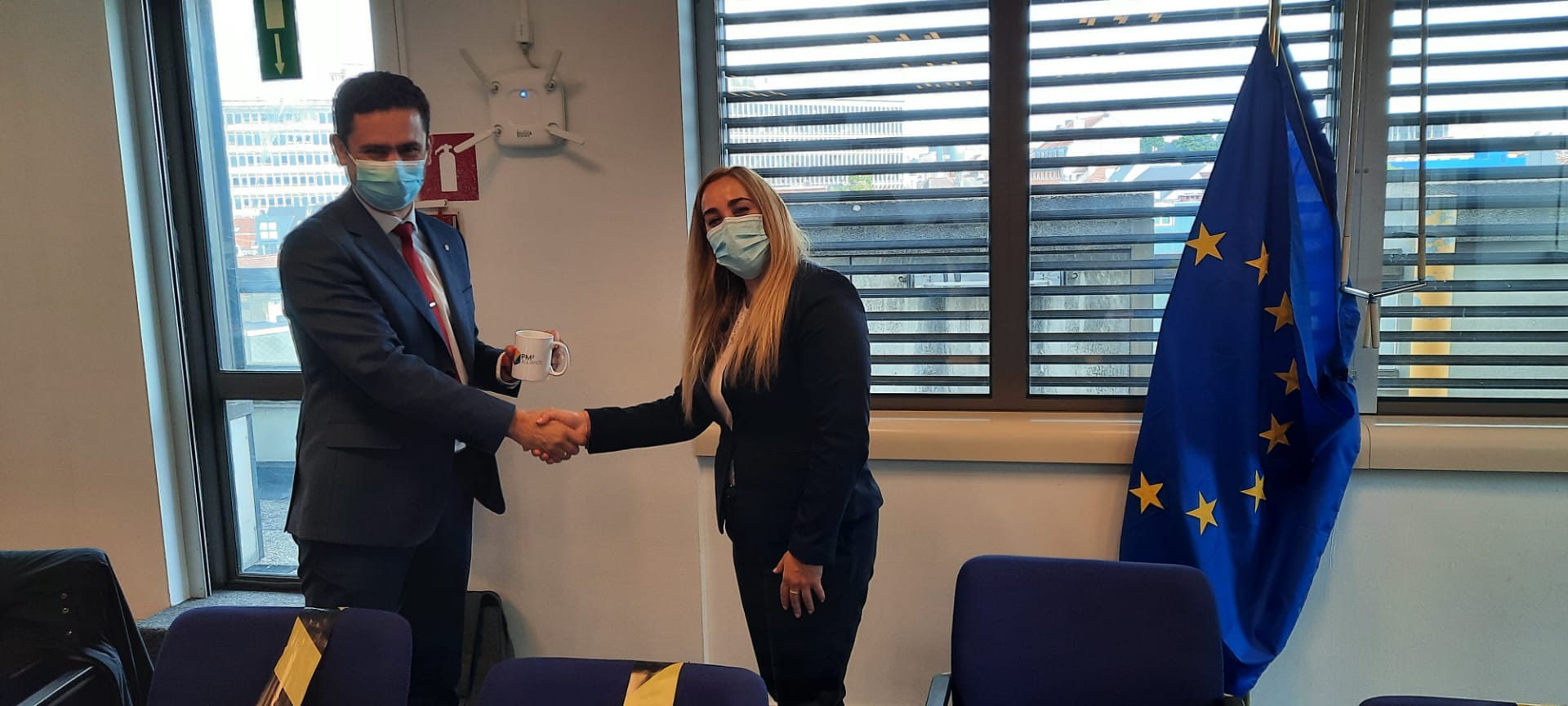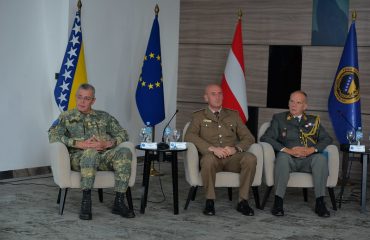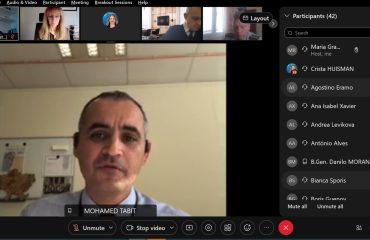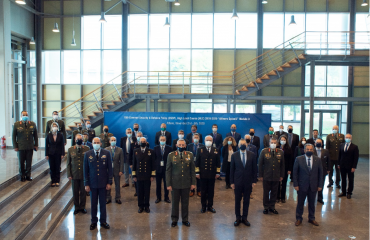 The PM2 Alliance had the honour to co-organise, together with the PESCO Secretariat, under the auspices of the ESDC, a tailor-made course on the use of the European Commission’s PM² Project Management Methodology to support the needs of the Permanent Structure Cooperation Projects.
The PM2 Alliance had the honour to co-organise, together with the PESCO Secretariat, under the auspices of the ESDC, a tailor-made course on the use of the European Commission’s PM² Project Management Methodology to support the needs of the Permanent Structure Cooperation Projects.
Some words on the Course Organisers 1. The PM² Alliance
 The PM² Alliance is an international, not-for-profit organisation founded by PM² practitioners that brings together individuals from institutions, academia and the broader private and public sectors, to inspire dialogue, share resources, and address the field’s challenges, while promoting the wider adoption of the PM² Methodology.
The Alliance is an Associated Member both of the ESDC and of the European Doctoral School on the Common Security and Defence Policy (also under the mandate of the ESDC), and has already delivered tailored training sessions on the use of the PM² methodology for the Benefit of the CSDP Missions and Operations (source 1, 2, 3)
2. The PESCO Secretariat
The PM² Alliance is an international, not-for-profit organisation founded by PM² practitioners that brings together individuals from institutions, academia and the broader private and public sectors, to inspire dialogue, share resources, and address the field’s challenges, while promoting the wider adoption of the PM² Methodology.
The Alliance is an Associated Member both of the ESDC and of the European Doctoral School on the Common Security and Defence Policy (also under the mandate of the ESDC), and has already delivered tailored training sessions on the use of the PM² methodology for the Benefit of the CSDP Missions and Operations (source 1, 2, 3)
2. The PESCO Secretariat
 The PESCO Secretariat, comprised of EDA and EEAS (including EUMS), serves as a platform where PESCO participating Member States can identify, assess and consolidate possible projects to make sure they respond to capability gaps and priorities identified in the CDP. The secretariat facilitates the successful adoption and implementation of PESCO projects, and as such contributed to the development of this course.
Course Objective
This pilot course aimed to address the needs expressed in the Council Conclusions on the PESCO Strategic Review (13188/20) of 20 November 2020:
The PESCO Secretariat, comprised of EDA and EEAS (including EUMS), serves as a platform where PESCO participating Member States can identify, assess and consolidate possible projects to make sure they respond to capability gaps and priorities identified in the CDP. The secretariat facilitates the successful adoption and implementation of PESCO projects, and as such contributed to the development of this course.
Course Objective
This pilot course aimed to address the needs expressed in the Council Conclusions on the PESCO Strategic Review (13188/20) of 20 November 2020:
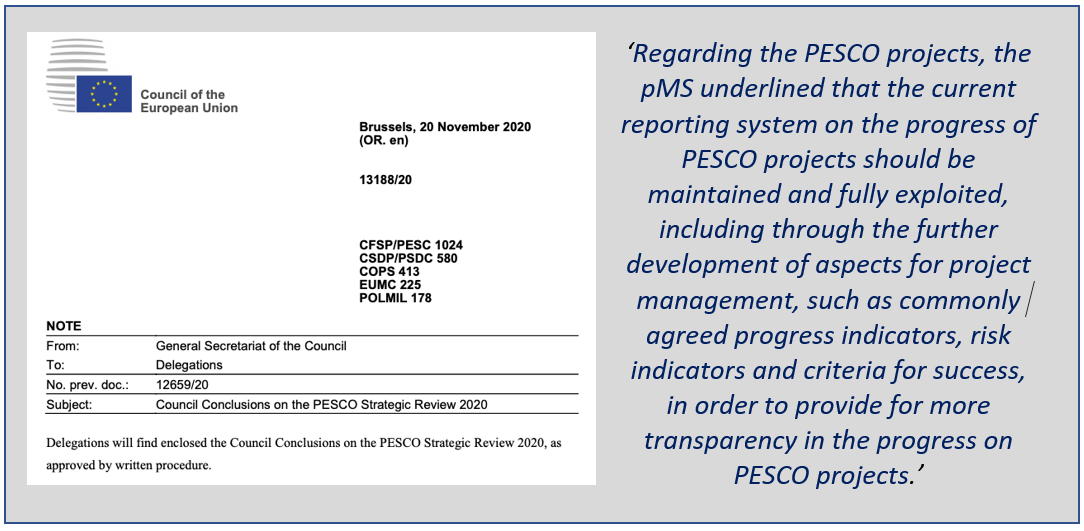 Course Delivery
The first day of our five-day course was dedicated to providing clear explanations to the course participants on the role of the PESCO Secretariat and the Council oversight function in accordance with Council decision (CFSP) 2018/909 of 25 June 2018 establishing a common set of governance rules for PESCO projects.
Seven experts from the PESCO Secretariat covered these topics in great detail, providing a solid foundation for what was to follow in the subsequent four days of the course.
With a clear focus on experiential training, the rest of the course was based on a realistic scenario of a fictional PESCO project, and the participants had the opportunity to learn and at the same time implement a tailored version of the PM² methodology, specifically designed to cover their organisational and project-related needs.
Course Delivery
The first day of our five-day course was dedicated to providing clear explanations to the course participants on the role of the PESCO Secretariat and the Council oversight function in accordance with Council decision (CFSP) 2018/909 of 25 June 2018 establishing a common set of governance rules for PESCO projects.
Seven experts from the PESCO Secretariat covered these topics in great detail, providing a solid foundation for what was to follow in the subsequent four days of the course.
With a clear focus on experiential training, the rest of the course was based on a realistic scenario of a fictional PESCO project, and the participants had the opportunity to learn and at the same time implement a tailored version of the PM² methodology, specifically designed to cover their organisational and project-related needs.
 It should be noted that the course was fairly intensive, with over 70 % of the time spent on practical workshops. All participants were given the opportunity to implement the methodology and see the benefits that could be derived from using it.
It should be noted that the course was fairly intensive, with over 70 % of the time spent on practical workshops. All participants were given the opportunity to implement the methodology and see the benefits that could be derived from using it.
Course results The course equipped participants with the necessary knowledge, skills and reference sources to help them understand, tailor and effectively use the PM2 Methodology for the management of their PESCO projects, and also for effective reporting and smooth communication with the numerous project stakeholders at various authority levels, with particular reference to the project reporting required in the PESCO context. In the meantime, participants have already started sharing their feedback, and it appears that another course has just been added to the ESDC’s ‘tool-box’. Here are some of the comments received so far:
The next steps include briefing the Executive Academic Board (EAB) on the course’s official evaluation and making the subsequent request for confirmation by the Steering Committee (Member States). We should thank our hosts and keynote speakers, and all participants for their trust in the ESDC and the course organisers, and we promise to continue providing training courses at the highest standards. Stay tuned for more information.
- I can not imagine anyone else presenting this complex topic as good as you did! Thank you
- General feedback. Great delivery Engaging content Well structured PM2 workshop Good mapping with PESCO terminology
- I I take the chance to thank you for the well done course and for the way you are able to keep high the attention of the group. I also appreciated your level of knowledge and how you managed the whole course. Thank you!
- Understandable introduction to scheduling & project planning approaches. Good interaction lecturer vs. trainee
- Everything was perfect, well structured and easily delivered.
Some more information about the PM2 Methodology
- PM2 is a Project Management Methodology developed by the European Commission. Its purpose is to enable Project Managers (PMs) to deliver solutions and benefits to their organisations by effectively managing the entire lifecycle of their project.
- PM2 has been created with the needs of European Union Institutions and projects in mind, but is transferrable to projects in any organisation.
- PM2 is a light and easy-to-implement methodology, which project teams can tailor to their specific needs.
- PM2 incorporates elements from a wide range of globally accepted project management best practices, captured in standards and methodologies. Its development has also been influenced by operational experience on various projects within both European Union Institutions and external bodies.
